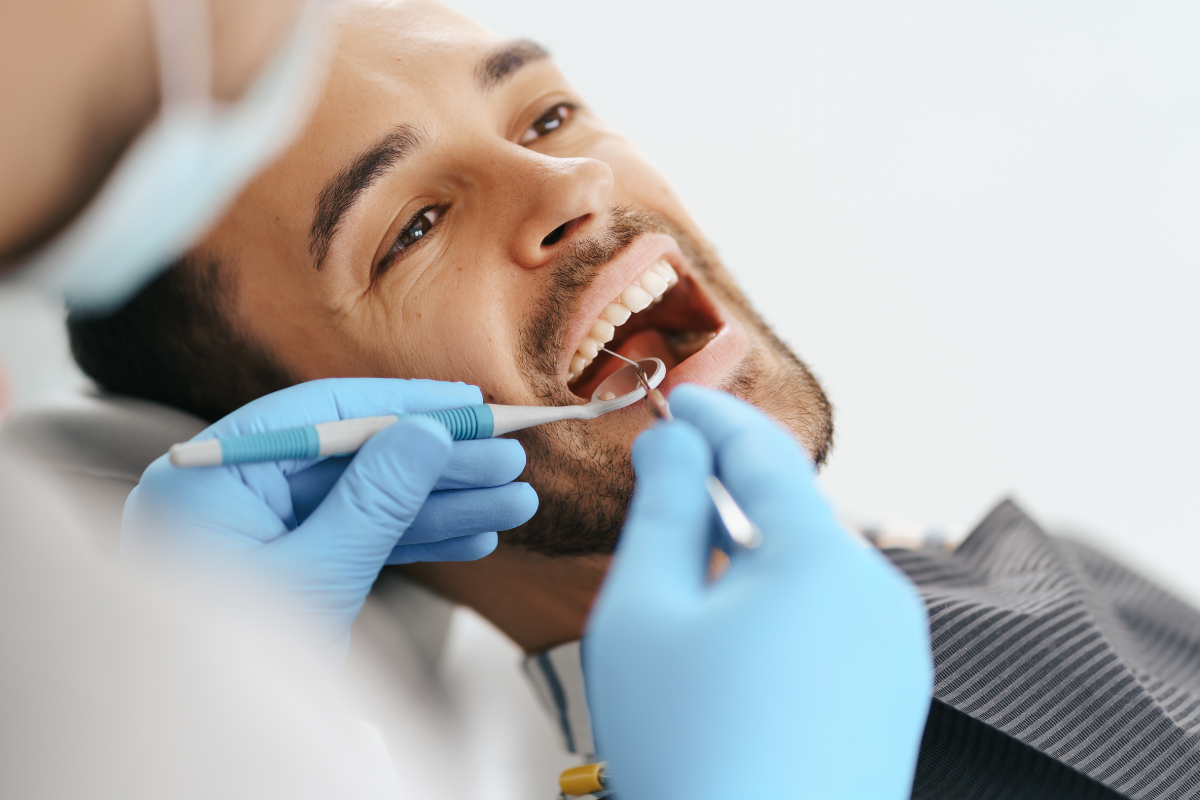The Common Consequences of Poor Dental Hygiene and Unhealthy Teeth
Maintaining good dental hygiene is absolutely essential for a confident smile, but not everyone knows now just how important good oral health is to your overall health. You can develop other conditions and diseases through your mouth, as it is the ultimate gateway into your body. If you haven’t been prioritising your oral health, here are the common consequences of poor dental hygiene and unhealthy teeth.
Common diseases of poor dental hygiene
Gum Disease
One of the most prevalent consequences of poor dental hygiene is gum disease, also known as periodontal disease. Gum disease starts with the accumulation of plaque, a sticky film of bacteria that forms on the teeth. If not removed through regular brushing and flossing, plaque hardens into tartar, leading to gum inflammation and irritation.
As gum disease progresses, symptoms such as red, swollen gums, bleeding while brushing or flossing, and persistent bad breath may arise. Without intervention, it can result in gum recession, tooth loss, and even affect the underlying bone structure.
Tooth Decay
When dental hygiene is neglected, harmful bacteria thrive in the mouth, causing tooth decay. The bacteria feed on sugars and produce acids that attack the tooth enamel, leading to cavities. Initially, tooth decay may manifest as sensitivity to hot or cold foods and drinks, but if left untreated, it can progress to severe pain, infection, and tooth loss.
Halitosis (Bad Breath)
Poor dental hygiene often contributes to persistent bad breath, known as halitosis. The buildup of bacteria and food particles in the mouth, especially between teeth and along the gumline, leads to an unpleasant odour. Regular brushing, flossing, and tongue cleaning are essential to remove these particles and maintain fresh breath.
Tooth Sensitivity
Neglected dental hygiene can also result in tooth sensitivity, a condition characterised by discomfort or pain when consuming hot, cold, sweet, or acidic foods and beverages. It occurs when the tooth enamel wears away, exposing the underlying dentin and nerve endings. Sensitivity can significantly impact one’s ability to enjoy certain foods and drinks, making proper dental care essential to prevent this discomfort.
Stained and Discoloured Teeth
Certain lifestyle choices, such as tobacco use or excessive consumption of staining substances like coffee, tea, and red wine, can cause tooth discolouration. However, poor dental hygiene can exacerbate this problem. When plaque and tartar build-up on the teeth, they can attract and hold onto staining particles, resulting in a dull and discoloured smile.
Oral Infections
The neglect of dental hygiene increases the risk of oral infections. The mouth is home to a wide range of bacteria, some of which can cause infections if they penetrate the gum tissue or reach the tooth’s inner pulp. These infections can lead to pain, swelling, abscesses, and even systemic health complications if left untreated.
Overall health problems of poor dental hygiene
In addition to toothaches and unsightly stains, poor dental hygiene can have far-reaching consequences on our overall health. Research has established compelling connections between inadequate oral health and serious medical conditions, which include the following.
Cardiovascular disease
Studies indicate that oral health can indirectly affect our cardiovascular well-being. In some cases, periodontal disease can lead to bacteria entering the bloodstream, potentially contributing to or worsening atherosclerosis (hardening of arteries). This process can result in the accumulation of plaque on the inner walls of arteries, impeding blood flow and elevating the risk of heart attack or stroke.
Respiratory infections
Gum disease has been linked to an increased vulnerability to respiratory infections such as pneumonia and chronic obstructive pulmonary disease (COPD), as revealed by a study published in the Journal of Periodontology.
Diabetic complication
Periodontal disease can exacerbate symptoms of diabetes by making it more challenging for patients to regulate their blood sugar levels.
Endocarditis
This perilous infection occurs when bacteria or other microorganisms from different parts of the body, including the mouth, enter the bloodstream and attach to the heart’s inner lining.
Cancer
Some studies have indicated a correlation between poor oral health and a heightened risk of a particularly deadly form of cancer, such as pancreatic cancer. Although the exact relationship is not fully understood, researchers believe that the bacteria responsible for periodontitis may play a role in the development of this type of cancer.
Wrapping Up
Maintaining good dental hygiene and ensuring the health of your teeth is crucial for a healthy smile and overall well-being. The problem is many of us ignore the signs and only visit a dentist when it’s too late.
Make it a priority to visit your dentist for routine checkups and professional cleanings. Regular dental examinations allow for early detection and intervention of any dental issues, preventing them from progressing into more serious conditions.
Remember, prevention is key when it comes to dental health. By taking proactive steps and maintaining good dental hygiene habits, you can significantly reduce the likelihood of encountering dental problems and their potential complications.
Take charge of your oral health today by scheduling a dental checkup and committing to a consistent oral hygiene routine. Your smile and overall well-being will thank you!
- GERD and Your Teeth: Why you should see a dentist urgently - November 24, 2024
- When a broken tooth is considered a dental emergency - November 24, 2024
- How to prevent tooth decay in children - July 9, 2024




